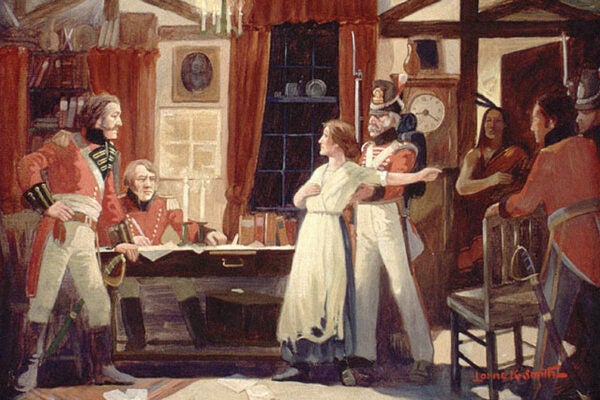The tactic of the boycott is centuries old. In the 1790s, for instance, English and American abolitionists boycotted sugar produced by slaves. But nobody called such consumer actions a “boycott” until 1880, thanks to one Charles Cunningham Boycott (1832-1897).
Historian Liam Ó Raghallaigh notes that Captain Boycott (“one of the ‘villains’ of Irish history”) was an English land agent for Lord Erne, the owner of 40,000 acres. He was responsible for collecting rents from tenants and evicting those who couldn’t pay. Unfortunately for Boycott, this was during Ireland’s Land War of 1879-1882. “War” is a misleading term for this period of popular unrest, though it did often turn violent. It was a time of economic crisis bought on by four years of crop failures, the perennial precariousness of the rural poor, and rising nationalism of the Home Rule movement.
In 1879 the Irish National Land League formed, campaigning for fair rents in its effort to better conditions. They also disrupted the fox hunting of the gentry and shunned those they saw as agents of repression. Some in the rebellion murdered landlords, their agents, and bailiffs. Famine conditions in western Ireland, combined with evictions and “rack-renting”—high rents ruthlessly collected, as if the tenant was on a torture rack—meant tensions were running high, and Boycott was unlikely to find friends in the local population.
With the rural poor dying from starvation, the Irish Nationalist Land League decided to make an example of Boycott. He was shunned by his neighbors, and many dozens laid siege to his farm in late 1880. They convinced Boycott’s laborers to join them or frightened off those who wouldn’t. Local shops also refused to serve him. He was essentially isolated with his family, three loyal staff, and a handful of guests.
But the mail still worked. Desperate to get his crops harvested, Boycott wrote a letter to The Times describing his plight. Orangemen (Protestants) and the state rallied to his cause. The “Boycott relief expedition” was the result, made up of 57 volunteer harvesters who came to “get in the Captain’s turnips” and potatoes. Nine hundred soldiers were also sent to protect these volunteers.
Ó Raghallaigh notes that the rescuers “ate Boycott out of house and home and turned his well-tended paths and lawns into an appalling quagmire” in the rain. Ó Raghallaigh also says it is “reckoned that it cost up to £10,000 to save a harvest worth at most £350.” After two weeks, the crops were in, the volunteers and troops were gone, and so too were the Boycotts. They went on a long trip, including a visit to the U.S. where they travelled under the name Cunningham.
The Boycott affair was big news in Ireland, England, and elsewhere in the English-speaking world. His name’s transformation into an eponym is attributed to a local priest, who suggested using “boycott” to describe what was happening because “ostracize” was too complicated a word for the local peasantry.
Boycotting spread across Ireland. The word was adopted elsewhere, including in non English-speaking countries. The new eponym was included in the first edition of A New English Dictionary Based on Historical Principles (1888), later known as the Oxford English Dictionary. And so Captain Boycott lives on, having unwillingly lent his name to a time-honored tactic.







